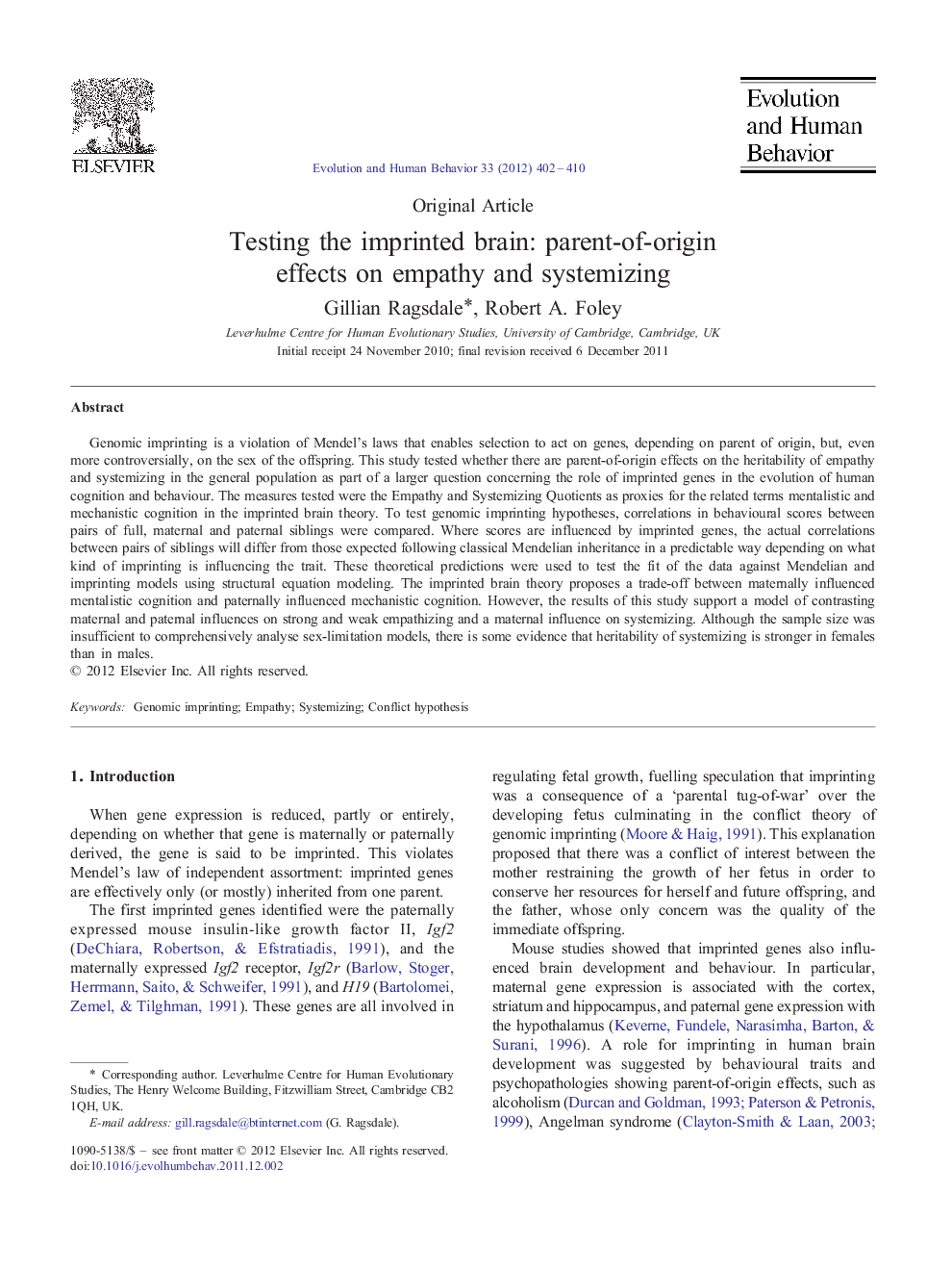| Article ID | Journal | Published Year | Pages | File Type |
|---|---|---|---|---|
| 943384 | Evolution and Human Behavior | 2012 | 9 Pages |
Genomic imprinting is a violation of Mendel's laws that enables selection to act on genes, depending on parent of origin, but, even more controversially, on the sex of the offspring. This study tested whether there are parent-of-origin effects on the heritability of empathy and systemizing in the general population as part of a larger question concerning the role of imprinted genes in the evolution of human cognition and behaviour. The measures tested were the Empathy and Systemizing Quotients as proxies for the related terms mentalistic and mechanistic cognition in the imprinted brain theory.To test genomic imprinting hypotheses, correlations in behavioural scores between pairs of full, maternal and paternal siblings were compared. Where scores are influenced by imprinted genes, the actual correlations between pairs of siblings will differ from those expected following classical Mendelian inheritance in a predictable way depending on what kind of imprinting is influencing the trait. These theoretical predictions were used to test the fit of the data against Mendelian and imprinting models using structural equation modeling. The imprinted brain theory proposes a trade-off between maternally influenced mentalistic cognition and paternally influenced mechanistic cognition. However, the results of this study support a model of contrasting maternal and paternal influences on strong and weak empathizing and a maternal influence on systemizing. Although the sample size was insufficient to comprehensively analyse sex-limitation models, there is some evidence that heritability of systemizing is stronger in females than in males.
